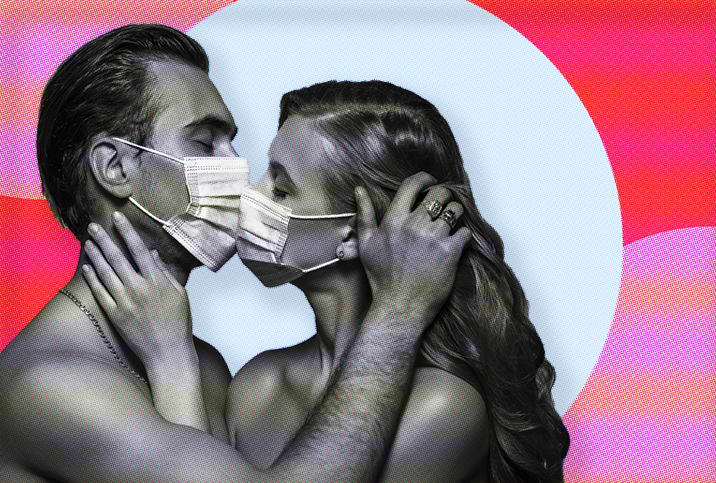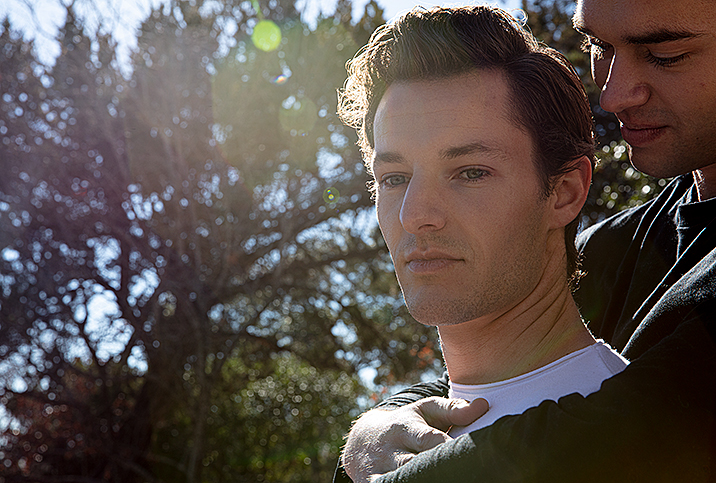Dating During COVID-19: Myths & Misconceptions

Since the global coronavirus pandemic took hold more than a year ago, online dating sites have reported record numbers for enrollment, virtual dates and messaging. This surge in online dating is unprecedented, but how could it not be? I mean, the last pandemic that might have led to such activity occurred more than 100 years ago, long before dating apps were invented.
The concept of online dating during a time when we are being instructed to keep our social interactions to small groups seems like a good fit. Even given its relatively short life, though, online dating is rife with myths. Some of the most common misconceptions are highlighted below, and we've taken the time to debunk them for you.
Myth: I can't meet anyone in person anyway, so now is not the time to start anything via online dating.
Reality: While safety is paramount, meeting in person isn't taboo, given the right precautions. Communicating with a potential partner and building a foundation of trust are vital components to eventually establishing physical contact, but that should always be true. Before meeting in person, it's important to know how your feelings and the other person's feelings align as to the severity of COVID-19. That includes a couple of aspects: First, you have to be on the same page as far as how seriously you take the virus. If you're very concerned and taking precautions, but the other person isn't, you're putting yourself in an unsafe and uncomfortable position. You probably shouldn't meet in person. Second, you need to know who they see and what they do, so you know the risk you're taking by including them in your inner circle. If you're both on the same page and being honest and communicative, there is no reason not to safely meet each other in person.
Myth: There's no future in an online relationship.
Reality: Because of the hurdles COVID-19 puts in the way of being physical, or even just being face to face, it's easy to believe that beginning an online relationship right now is futile. But the circumstances for creating something lasting are in place.
The "new" style of online dating that has been shaped by COVID-19 can be summed up in six words: Most people are slowing things down. Due to concerns over the illness, more people are resisting physical contact with partners before they establish trust. Biological anthropologist Helen Fisher calls this phenomenon "slow love." Because you cannot (or should not) immediately meet someone you just "swiped on," you're forced to slow down, talk, video chat, and hopefully truly connect before you meet them in person. This lays the foundation for a lasting relationship, whether it be romantic or platonic.
Myth: There's no romance anymore.
Reality: Online dating during COVID-19 has brought forth a new type of romance, which can be viewed in relation to Fisher's "slow love" concept. Before meeting in person to engage in an official date (or even to hook up), people are taking the time to speak at length. Singles in the dating pool report that they have extensive conversations before a virtual date and then, eventually, a socially distanced date (or more than one) before engaging in anything enclosed or more physically intimate. This style of dating shows true effort, follow-through and interest. In an age when ghosting is still an unfortunate and common reality, finding someone who is willing to invest so much time and effort before anything physical occurs is enormously romantic.
The general view of online dating right now is that it's bustling and growing. The format of virtual romance has always been a "make it what you want it to be" situation, where people could find a one-night stand, a fling or a serious relationship by simply checking certain boxes on their profile. Now, online dating is tailored more to lasting relationships. The climate is one that forces intimate conversation more than intimate physical acts, and while the physical aspect of a relationship is extremely important, emotional and intellectual intimacy is both necessary, as well, pandemic or no pandemic.

















